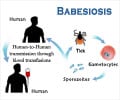There are two approaches to protect humans from infectious disease - targeting pathogens, parasites or dealing with the conditions that allow transmission.

The team from University of Colorado and University of Virginia demonstrated the effectiveness of a third strategy - adjusting the landscape of the human body to remove the mechanism that allows pathogens to cause disease.
With Chelsea Marie, postdoctoral researcher from University of Virginia, the group decided to silence genes in human cells to discover if the loss of any single gene would confer immunity to the parasite E histolytica.
The group applied an innovative cancer science technique to the study of infectious disease.
"Chelsea is a fearless experimenter. She took a library of cells with bladder cancer and then sequentially killed them with E. histolytica parasites," said William A. Petri, chief of the division of infectious diseases and international health at University of Virginia.
Specifically, the group used the technique to create a library of bladder cancer cells with thousands of independent, silenced genes.
Advertisement
"There is a clear need for new drugs targeting E. histolytica," the authors noted.
Advertisement
"We know that eventually the parasite will develop resistance to the antibiotic and at that point there's no plan B. This could be the plan B - targeting the human genes that enable the parasite to cause disease," Petri noted.
The study, published in the journal Nature Scientific Reports, shows that in addition to characteristics of the parasite, mortality due to disease can be prevented by manipulating characteristics of the host.
Source-IANS















